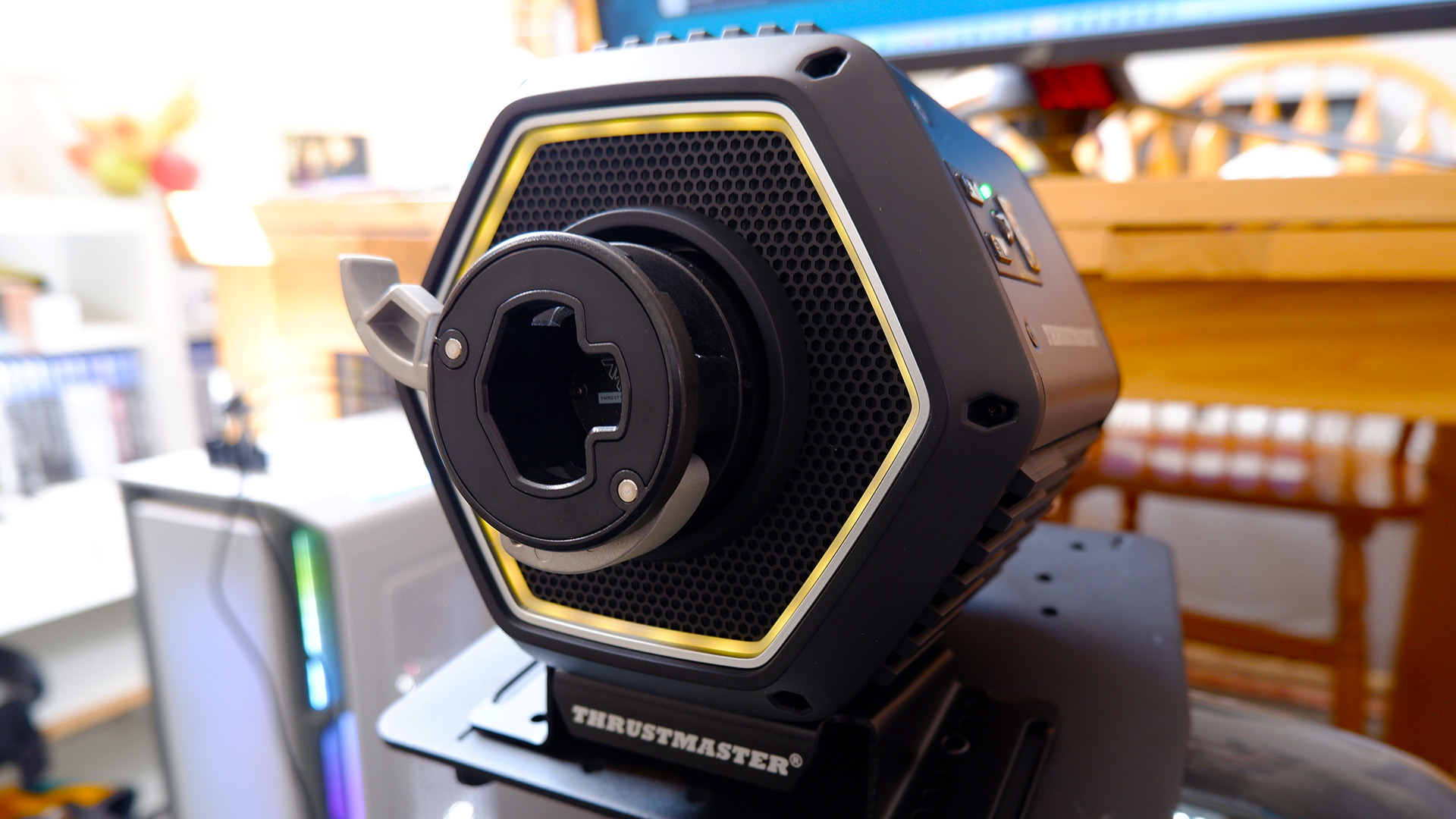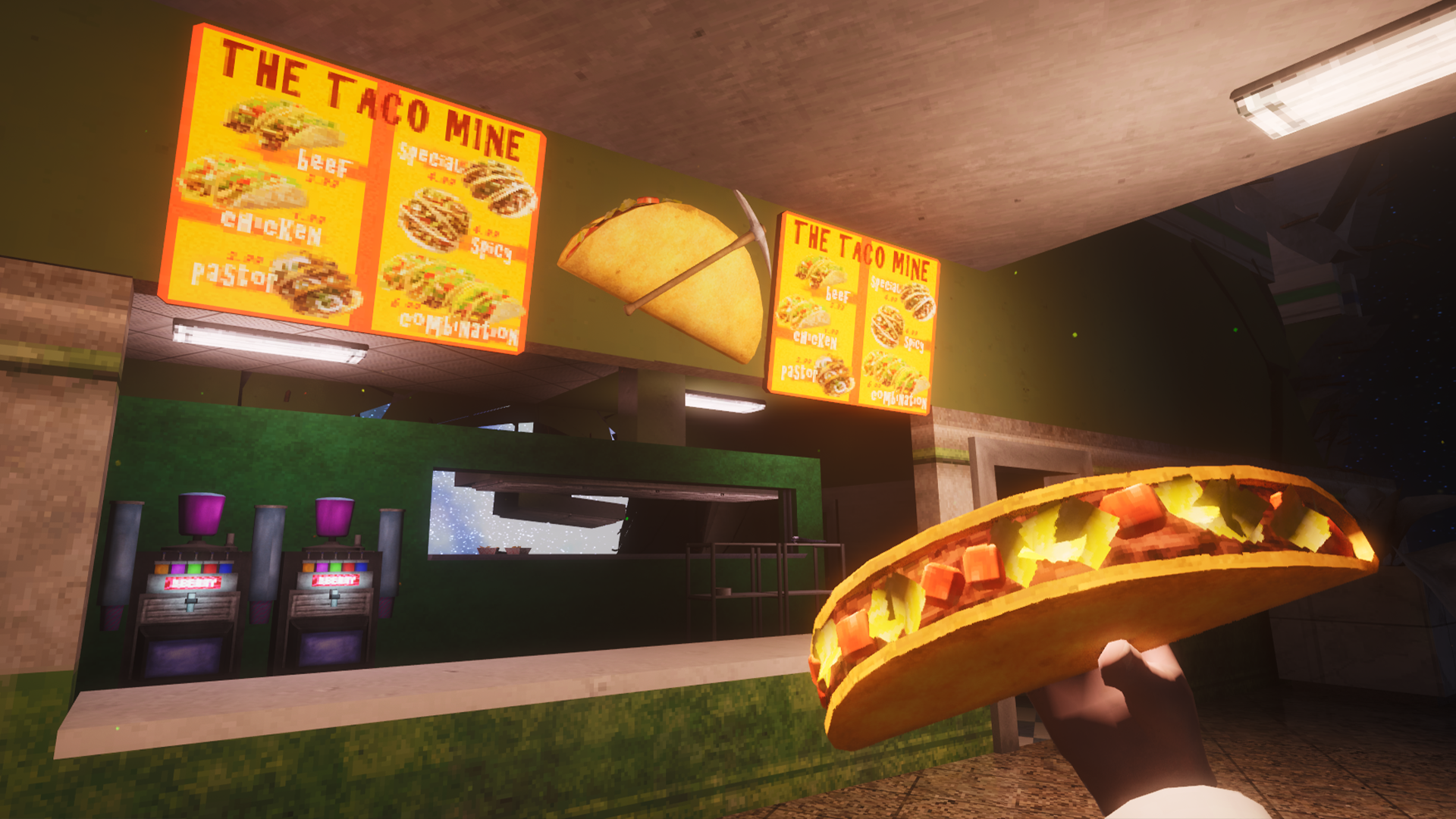
A direct drive wheel base with tons of torque for the money.
A direct drive wheel base is the best way to experience a racing game, and we’re at a point in time when they’re becoming smaller, better, and more affordable. The Thrustmaster T818 is a prime example of this new DD generation, and it packs a serious punch.
The Thrustmaster T818 will set you back $650 (£600), which appears deceivingly cheap for the darling of sim racing tech but that’s only for the wheel base. You’ll need to provide your own wheel and pedal set. That’s obviously going to tack on a lot more money to the overall cost if you need to buy every piece new. However, if you already have a T300 setup, for example, take the wheel and pedals right off that and plug them into the T818—it’s compatible with all of Thrustmaster’s standardised plug and play parts.
I’ve been using the $180 Open Wheel Add-On for my testing, but I’m also borrowing a set of $100 T3PM pedals from the Thrustmaster T248 I use at home. This all worked great with the T818—the back-to-basics wheel is all you need for F1 racing and the pedals are responsive and snappy.
All which goes to show you don’t need to spend heaps of money on everything else to build a good setup around the T818.
In an ideal world I’d have paired a set of T-LCM pedals with a load-cell brake alongside the T818, as the T3PM is lacking next to the Logitech Pro Racing Pedals I’m comparing against. But the beauty is here you could make that leap when you can afford it. Thrustmaster allows you to build up a premium setup piece-by-piece, which I really value being able to do.
For most of my testing I’ve been using the wheel loaded into the Logitech G Playseat cockpit. Mounting into the cockpit wasn’t as easy as I’d thought it would be, however. The screw holes on the underside of the T818 don’t align with any on the Playseat, which is quite a feat as there are heaps of screw holes with compatibility for all sorts of different bases. Thankfully, Thrustmaster sent over the desk mounting kit which includes a stand that aligns with two screw holes on the cockpit, but it sets the wheel at a slight tilt.
Thrustmaster actually sells a separate cockpit mounting plate for the T818 on its website for $40, which seems like a lot for what is effectively a metal adapter plate and a handful of screws you probably have plenty of already.
(Image credit: Future)
The two-screw desk mounting plate holds the wheel firm, anyways. And you get the option of mounting this to a desk if need be. I gave that a whirl, too, and it’s a pretty simple clamp system that holds firm. It’s only slightly limited by the 60mm height of the metal clamps that go around the table edge, so make sure to measure your desk before you buy.
The T818 is a fairly simple setup. Within the FFB Racing Wheel software you can update the firmware and access the control panel. It’s here that you might want to tweak the overall force feedback strength, as it’s set to just 50% by default. To push it higher than that, you have to unlock the slider, which will set off a warning to let you know that this is for trained adult drivers only. This also unlocks two extra modes, Performance and Extreme. With only two screws holding the wheel to the cockpit, I am a little cautious to crank the force feedback up to 100%, so I’ve settled at 60%.
(Image credit: Future)
I needn’t have cranked it up, however. With up to 10Nm of torque coursing through the direct drive motor on the T818, it’s extremely powerful under hand. It really shows next to the Fanatec CSL DD at just 5Nm (up to 8Nm with a kit sold separately, which I don’t have)—the Thustmaster absolutely throws this compact wheel around. It feels excellent. It’s also only a touch under the 11Nm on offer by the much pricier Logitech G Pro Racing Wheel, and I didn’t notice that small difference in power, I’d guess because of the lightweight wheel I’ve installed on the Thrustmaster.
The wide selection of compatible wheels and add-ons already on offer by Thrustmaster is one of the reasons you might want the T818 in the first place. It’s here that the T818 has the Logitech G Pro Racing Wheel beat, and for open-wheel style add-ons you’re sorted for options that’ll fit.
(Image credit: Future)
(Image credit: Future)
Best PC racing wheels : perfect for any circuit.
Best VR headset: which set is right for trackdays?
The T818 does feel the cheapest of the direct drive bases I’ve tested, however, despite being more expensive than the base CSL DD by some margin, namely for the plastic parts connecting base to wheel. Thrustmaster say these parts, such as the handy Fast Release lever, keep down on weight, which I can definitely see being the case, but it’s definitely short of the metal construction used on the cheaper Fanatec option. That’s something you’ll have to come to terms with on the T818—it’s a good deal for a 10Nm direct drive base but not the most polished product to look at.
A solid middle-of-the-road option, nonetheless, the T818 is a great upgrade for anyone that’s already bought into the Thrustmaster ecosystem. However, if you’re starting your sim racing setup from scratch, I’d still recommend the Fanatec CSL DD as the better and somewhat more affordable option.



